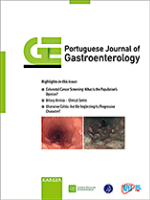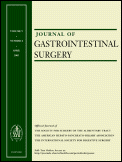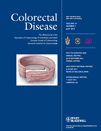
Esophagus
Scope & Guideline
Pioneering Insights in Gastroenterology
Introduction
Aims and Scopes
- Esophageal Cancer Research:
A core focus on the etiology, diagnosis, treatment modalities, and outcomes related to esophageal cancer, including studies on neoadjuvant therapies, surgical techniques, and prognostic indicators. - Endoscopic Techniques and Innovations:
Investigation into advanced endoscopic procedures such as endoscopic submucosal dissection (ESD) and peroral endoscopic myotomy (POEM), emphasizing safety, efficacy, and technical improvements. - Motility Disorders:
Research dedicated to understanding esophageal motility disorders, including achalasia and non-erosive reflux disease, using diagnostic tools like high-resolution manometry. - Surgical Techniques and Outcomes:
Exploration of various surgical approaches for esophageal diseases, focusing on minimally invasive techniques, reconstruction methods, and postoperative complications. - Clinical Outcomes and Quality of Life:
Studies analyzing the impact of esophageal treatments on patient quality of life, with a focus on long-term outcomes and patient-reported measures. - Multimodal Treatment Approaches:
Emphasis on combined treatment strategies, including chemotherapy, radiotherapy, and immunotherapy, particularly in the context of advanced and recurrent esophageal cancers.
Trending and Emerging
- Immunotherapy in Esophageal Cancer:
An increasing number of studies are focusing on the role of immunotherapy, particularly checkpoint inhibitors, in the treatment of esophageal cancer, marking a significant shift towards personalized treatment options. - Minimally Invasive Surgical Techniques:
There is a growing trend towards exploring and refining minimally invasive surgical techniques, such as robotic-assisted surgeries and advanced endoscopic procedures, which are associated with improved patient outcomes. - Patient-Centered Outcomes Research:
Research prioritizing patient-reported outcomes and quality of life assessments is on the rise, reflecting a broader trend in healthcare towards valuing patient perspectives in treatment efficacy. - Multidisciplinary Approaches to Treatment:
Emerging themes highlight the importance of multidisciplinary care models that integrate surgical, medical, and supportive care for comprehensive management of esophageal diseases. - Advanced Imaging Techniques:
Studies utilizing advanced imaging modalities, such as MRI and endoscopic imaging technologies, are increasingly common, aimed at improving diagnostic accuracy and treatment planning.
Declining or Waning
- Conventional Chemotherapy Studies:
There has been a noticeable decrease in studies focused solely on conventional chemotherapy regimens without integrating newer modalities like immunotherapy or targeted therapy. - Basic Science Research:
Research purely based on laboratory studies or basic science without direct clinical application appears to be diminishing, as the journal increasingly favors translational research that connects laboratory findings to clinical outcomes. - Outcomes of Traditional Surgical Techniques:
The frequency of publications focusing on traditional surgical techniques without innovative enhancements or comparisons to minimally invasive approaches is declining, indicating a shift towards more advanced surgical methods. - Epidemiological Studies:
While epidemiology remains important, there is a reduced emphasis on broad epidemiological studies in favor of more targeted, clinical investigations that directly inform treatment strategies.
Similar Journals

GE Portuguese Journal of Gastroenterology
Unlocking Insights in Gastroenterology ResearchThe GE Portuguese Journal of Gastroenterology, published by KARGER, is a prominent platform in the field of gastroenterology, providing a vital forum for the dissemination of high-quality research since its establishment. With an open access model implemented in 2012, the journal ensures that emerging findings in gastrointestinal health are readily accessible to a global audience, facilitating the exchange of critical knowledge among researchers, practitioners, and students alike. Based in Switzerland, this journal has earned a respected position within the academic community, currently holding a Q3 ranking in the gastroenterology category for 2023, alongside a Scopus rank of #113 out of 167 in its field. Spanning converged years from 2014 to 2024, the GE Portuguese Journal of Gastroenterology aims to bridge gaps in research and practice, fostering collaboration and innovation across diverse areas within the discipline. Authors and readers alike benefit from the journal's commitment to advancing knowledge and practice in gastroenterology.

JOURNAL OF THORACIC AND CARDIOVASCULAR SURGERY
Pioneering research for a healthier heart and lungs.JOURNAL OF THORACIC AND CARDIOVASCULAR SURGERY, published by Mosby-Elsevier, stands as a leading peer-reviewed journal dedicated to advancing the fields of thoracic and cardiovascular surgery. With an impressive impact factor reflecting its rigorous standards and significance, this journal occupies prestigious Q1 quartiles in 2023 across Cardiology and Cardiovascular Medicine, Pulmonary and Respiratory Medicine, as well as Surgery. Additionally, it boasts remarkable rankings in the Scopus database, being placed at #8 in Surgery and #29 in Cardiology and Cardiovascular Medicine, underscoring its pivotal role in disseminating high-quality research and clinical insights. Its scope encompasses vital areas such as surgical techniques, innovative therapies, and patient outcomes, making it an essential resource for researchers, clinicians, and students passionate about advancing cardiac and pulmonary health. Though not an open-access journal, it ensures that subscribers and institutional partners can access valuable research contributions published within its pages from 1959 to 2024. The JOURNAL OF THORACIC AND CARDIOVASCULAR SURGERY continues to shape the future of surgical practices and enhance patient care on a global scale.

JOURNAL OF GASTROINTESTINAL SURGERY
Advancing gastrointestinal surgery through rigorous research.JOURNAL OF GASTROINTESTINAL SURGERY, published by Elsevier Science Inc, is a premier academic journal dedicated to advancing the field of gastrointestinal surgery. Since its inception in 1997, this journal has served as a vital resource for researchers, clinicians, and students, providing a platform for the dissemination of high-quality original research, reviews, and innovative surgical techniques. With a solid impact factor and ranked Q1 in Surgery and Q2 in Gastroenterology as of 2023, it boasts an impressive Scopus ranking that highlights its influence in both medical and surgical spheres. Situated in the United States, the journal emphasizes the importance of peer-reviewed research that contributes to improved surgical practices and patient outcomes. Although currently not offering open access, its robust editorial policies ensure rigorous quality control, making it an essential reference for anyone involved in gastrointestinal research and surgery.

ANNALS OF VASCULAR SURGERY
Innovating Surgical Techniques for Enhanced Patient CareANNALS OF VASCULAR SURGERY is a premier journal published by Elsevier Science Inc, focusing on the rapidly evolving field of vascular surgery and its related disciplines. With a notable impact factor reflected in its 2023 Q2 rankings in Cardiology and Cardiovascular Medicine, as well as in Medicine and Surgery, this journal stands out as a reputable source for cutting-edge research and clinical practices. Since its inception in 1986, it has aimed to advance knowledge, foster innovation, and enhance surgical techniques through comprehensive reviews, original research articles, and clinical trials. Although not currently adopting an open access model, the journal continues to serve as a crucial repository of information for researchers, clinicians, and students, facilitating the dissemination of clinical and scientific advancements in vascular health. As it converges through the years towards 2024, the ANNALS OF VASCULAR SURGERY is poised to remain a valuable resource for the global medical community.

Therapeutic Advances in Gastroenterology
Transforming patient care through innovative findings.Therapeutic Advances in Gastroenterology, published by SAGE Publications Ltd, is a premier open access journal dedicated to the advancement of knowledge in the field of gastroenterology. Since its inception in 2008 and its transition to open access in 2018, the journal has consistently provided high-quality peer-reviewed research articles, review papers, and clinical studies that address the latest therapeutic advancements and challenges in gastrointestinal medicine. With an impressive impact factor and a 2023 Scopus ranking placing it in the Q1 quartile of gastroenterology journals, it stands as a leading platform for researchers, clinicians, and healthcare professionals. The journal’s commitment to disseminating impactful research has positioned it at the forefront of academic discourse, offering a vital resource for those devoted to improving patient outcomes in digestive health. The United Kingdom-based journal invites submissions that contribute to the understanding and treatment of gastrointestinal disorders, ensuring that cutting-edge findings reach a global audience.

Colorectal Disease
Pioneering Research for Effective Treatment StrategiesColorectal Disease, published by Wiley, is a premier journal dedicated to advancing research and clinical practice in the field of gastroenterology. With an impressive impact factor and ranked in the Q1 category for Gastroenterology according to 2023 metrics, this journal serves as a vital platform for researchers, clinicians, and students alike. Covering a diverse range of topics from clinical trials to innovative treatment practices, Colorectal Disease strives to disseminate high-quality research that informs effective treatment strategies for colorectal conditions. Since its inception in 1999, the journal has established itself as an essential resource, with its contributions placing it in the 76th percentile among its peers in Scopus rankings. While the journal is not open access, it provides a wealth of knowledge and insights that are crucial for anyone involved in gastrointestinal research and practice. The journal’s address is 111 River Street, Hoboken, NJ 07030-5774, United Kingdom, where it continues to champion excellence in colorectal health research until the end of 2024.

Gastroenterology
Advancing Digestive Health Through Premier ResearchGastroenterology, published by W B Saunders Co-Elsevier Inc, is a premier journal dedicated to advancing the knowledge and practice within the fields of gastroenterology and hepatology. Established in 1945 and covering a wide range of topics related to digestive health, this journal holds a distinguished position in the academic community, as evidenced by its impressive Q1 status in both Gastroenterology and Hepatology categories, and its high rankings (4th in both disciplines) in Scopus, placing it in the top percentile for scholarly impact. With its commitment to publishing high-quality research, reviews, and clinical studies, Gastroenterology provides an essential resource for researchers, healthcare professionals, and students seeking cutting-edge insights that inform clinical practices and enhance patient care. Although it does not currently offer open access, the journal continues to serve as a vital platform for disseminating meaningful research that shapes the future of digestive disease management.

ABCD-Arquivos Brasileiros de Cirurgia Digestiva-Brazilian Archives of Digestive Surgery
Transforming Digestive Surgery with Open Access KnowledgeABCD-Arquivos Brasileiros de Cirurgia Digestiva-Brazilian Archives of Digestive Surgery is a reputable open access journal published by the Colégio Brasileiro de Cirurgia Digestiva (CBCD), dedicated to advancing the field of digestive surgery. With a focus on the latest research and clinical practices, the journal has been instrumental since its inception in fostering knowledge sharing within the surgical community. Its impressive impact factor and inclusion in renowned databases underscore its significance, particularly in gastroenterology and surgery, as evidenced by its 2023 quartile rankings of Q3 in Gastroenterology and Medicine, and Q2 in Surgery. Accessible since 2017, ABCD not only bridges the gap between research and practice in Brazil but also globally as researchers, professionals, and students contribute and gain insights into innovative surgical techniques and outcomes. Based in São Paulo, Brazil, the journal covers a broad spectrum of topics in digestive health and serves as a crucial resource for anyone passionate about surgery and medicine.

PRACTICAL GASTROENTEROLOGY
Navigating the Frontiers of Gastroenterology ResearchPRACTICAL GASTROENTEROLOGY is a distinguished journal dedicated to the field of gastroenterology, published by Shugar Publishing Inc in the United States. With an ISSN of 0277-4208, the journal serves as a pivotal resource for medical professionals, researchers, and students keen on staying abreast of the latest advancements and practical applications in gastrointestinal health. Although it does not currently operate under an Open Access model, it has been a respected publication since its inception, spanning significant years of research from 1989 to 2013 and resuming again from 2016 to 2023. Despite holding a current Q4 ranking in Gastroenterology with Scopus, its commitment to quality insights provides a platform for critical information dissemination, making it an essential read for those engaged in clinical practice and academic research. The journal’s objectives include addressing practical challenges in gastroenterology, bridging the gap between research and clinical implementation, and fostering ongoing education among practitioners in this dynamic field.

Visceral Medicine
Transforming Insights into Practice in Visceral MedicineVisceral Medicine is a distinguished journal published by KARGER, specializing in the fields of gastroenterology and surgery. With an ISSN of 2297-4725 and an E-ISSN of 2297-475X, this journal has secured its place in the academic landscape since its inception in 2016, maintaining a consistent quality of research and fostering advancements in visceral health through the year 2024. With notable rankings within the 2nd quartile (Q2) for both gastroenterology and surgery categories, Visceral Medicine ranks #101 out of 551 in the Medicine & Surgery category and #67 out of 167 in Gastroenterology according to Scopus, reflecting its significant impact and relevance in the pursuit of scientific knowledge. Despite not being an open access journal, it provides valuable insights and original research aimed at professionals, researchers, and students keen on expanding their understanding of visceral diseases and innovative surgical techniques. The journal is headquartered in Basel, Switzerland, contributing to its reputation as a hub for high-quality scholarly communication within the medical community.